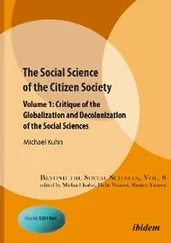The idea of a “dialogue of civilizations” as an extremely abstract position, deprived of clearly formulated goals and attachment to social subjects, is formulated in the preface to the Russian translation of F. Braudel’s book The Grammar of Civilizations : “Globalization is developing simultaneously with the emergence of a multipolar world. Civilizations must learn … to accept the existence of other civilizations, to recognize that they will never achieve domination over others, to be ready to see others as equal partners 20 20 Braudel, F. Grammar of civilizations. / Grammatika tsivilizatsii M.: Ves mir, 2008, 552 pp.
.” The concept of a “dialogue of civilizations” justly believes that the sociocultural sphere is not a carbon copy of the economy. It is based on the principle of “equality” of civilizations, cultures, and peoples, and sees the ideal global society as “unity in diversity”.
In fact, behind the concept of a “dialogue of civilizations”, there is the desire of the already established global periphery to resist the pressure of the West in terms of the unification of cultures and values and to develop its project of existence in a united world. From this perspective, globalization is a challenge to cultural-civilizational and national identity that applies to all development scenarios, including the concept of a “dialogue of civilizations 21 21 Guseinov, A.A. Lichnost i natsiya v svete globalizma. // Eastern Christian civilization and eastern Christian society in the modern society. M., 2001, pp. 25—33.
.”
Nevertheless, it should be noted that today the process is happening in a slightly different manner: namely, the ideology of the largest community – the people of the Western world, the “golden billion” – is being formed. It is a subjective, group outlook on reality that serves the global confrontation as regards people’s material well-being. And the confrontation within the new, global community inevitably arises due to the growing struggle for natural resources due, in particular, to the exponential growth of the population.
At the same time, the idea of a “dialogue of civilizations” as an ideal and almost conflict-free development, presented as an alternative to the real practices of globalization and the real strategy of globalism, is not, in fact, a real alternative. This position is, at best, more of an ideal tendency, if not wishful thinking.
Moreover, this wish is so abstract that it fails the test not only of social practices but also of the concretization and development of a local applied model of such a “dialogue”.
Behind globalism, there are very real interests and actors involved in global events. At the same time, behind the “universal” abstract idea of a “dialogue of civilizations” we cannot see any substantial economic interests that would outweigh the benefits of globalism for elites, including local elites. Similarly, there are neither actors interested in symmetric, equal dialogue nor subjects capable of ensuring it. Nor is there an arbitrator standing above the fray interested in, and capable of, forcing the participants of globalization who have real economic and other kinds of power to join the “dialogue of civilizations”.
The absence of the actors interested in the implementation of this scenario of globalization development is explained by the fact that the life and death issues important to these actors are being resolved in the course of their interaction. The result of direct interaction between the “wolf” and the “lamb”, devoid of spatial and mechanical barriers, is obvious, regardless of the calls of the weaker side for an equal dialogue. As a result, the idea of a “dialogue of civilizations” is, at best, a form of appeal by the losing side to the mercy of the winners, a form of “incorporation” into the Western model of globalization.
Another form of appeal by local outsiders to the mercy of the leaders of global development is the idea of “preserving civilizational (cultural) diversity”, clearly repeating the slogan of “preserving the biodiversity” of the environment. The slogan of “preservation of diversity” is nothing else but a strategy of preserving the physical existence of the ethnocultural community at the cost of the loss of historical subjectivity and transformation from a subject into an object of protection – the transition of the local society into the status of a protected biological object. Nevertheless, for many primitive ethnic groups, obtaining the status of a protected object (small indigenous peoples with a traditional economy) was a relatively successful way out of the “trap of globalization”.
In general, the pressure of globalization on local societies and groups yields two types of reactions. The first one manifests in the closure and development of protective group consciousness, in the transformation of local societies into diasporas. The second type manifests in the aspiration of local and regional communities, politically formed as states, to enter globalization on their own, most favorable, conditions. A third type is also possible – the development of a separate global project. But this has the highest resource requirements and, without reservations, is available only to China.
In any case, even when criticizing, “rejecting” globalization in its Western expansionist version, it is necessary to recognize that the problem itself and the challenges associated with it remain. This happens because the foundations of globalization – the globalization of the economy, the transformation of local societies into open systems, the removal of spatial and informational barriers, the growing crisis of resources and demographics – exist and develop objectively.
Contemporary Russian studies of globalization lie within the framework of several theoretical approaches that unwittingly reflect the balance of social forces and interests in and around Russia.
The neoliberal view of globalization, which, to a large extent, has acquired the status of the official concept of reform and development of the Russian Federation, reflects the views of modern Russian elites, whose interests are largely associated with the raw material economic cycle and the global economic order. It is simply a local adaptation of the views and theoretical constructions of such classics of neoliberalism as F. Hayek 22 22 Hayek, F. Individualism and Economic Order. / Individualizm i globalny poryadok. M.: Izograf, 2000, 256 pp.
, M. Friedman 23 23 Friedman, M. Methodology of positive economic science / Metodologiya pozitivnoi ekonomicheskoi nauki. // THESIS, 1994, #4, pp. 20—52.
, and K. Popper 24 24 Popper, K. The Open Society and Its Enemies. / Otkrytoe obschestvo i ego vragi. M.: Feniks, Mezhdunarodny fond Kulturnaya Initsiativa, 1992, 448 pp.
. Accordingly, the negative consequences of total liberalization of all spheres of human existence are presented as “objectively inevitable” and, as a consequence, as an alternative-free and uncontrollable phenomenon. Any attempt to manage it threatens an even worse outcome.
In general, liberal approaches to globalization, as an extreme form of economic determinism, are characterized by the denial of the systemic complexity of social development, fundamentally irreducible to the phenomena and laws of the economic and material order.
Thus, the neoliberal concept of globalization, which has taken hold of the elites and expresses their interests in a concentrated way, acquires the character of an objective historical factor. In general, neoliberalism is not only a theoretical model describing the real processes of the modern age. Its main task is to create standard perceptions whose implementation in economic policy is one of the characteristic manifestations of globalization. In particular, neoliberalism, taken as a phenomenon of social consciousness, can be seen as a theory justifying the separation of the ruling classes from local societies and the formation of a global elite. The main provisions of this concept are based on the direct results of the vertical fragmentation of society and the crisis of post-industrial nations.
Читать дальше












